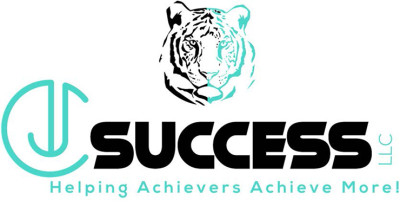



Leadership, management, and presentation skills are all crucial components in the development of a successful business leader. In this article, JSuccess Experts; Tania Friedlander, Leadership Coach weighs in on leadership; along with Hindy Raichik, COO of GCNY Marketing on Management; and Eliezer Blatt, International Presentation Trainer on Presentation Skills.
Personal & Business Development Series
By Isaac Portugal, Content Creator, JSuccess
To be successful as a business leader, there are many different components in many different categories to master. In this series, we explore one category each issue over a 5-edition cycle, and then we start the cycle over again iy”H. Here’s an outline.
THIS WEEK: Leadership,
Management & Presentation Skills:
- Leadership: Tania Friedlander
- Management: Hindy Raichik
- Presentation Skills: Eliezer Blatt
Issue 162: Business Development, Sales & Marketing:
- Business Development: Rachel Lebowitz
- Selling: David Hochberg
- Marketing Strategy: Yisroel H. Levovitz
Issue 163: Corporate Culture, Psychological Safety & Core Values:
- Corporate Culture: Zev Freundlich
- Psychological Safety: Dave Linn
- Core Values: Rabbi Nachman Seltzer
Issue 164: Goal Setting, Growth Mindset & Productivity:
- Goal Setting: Bentzy Rosenberg;
- Growth Mindset: Jacob Rupp
- Productivity: Avi Friedman
Issue 165: Wealth, Financial Wellness, and Fitness & Health:
- Wealth Mindset: Chany G. Rosengarten
- Financial Wellness: Simi Mandelbaum
Fitness & Health: Chaim Loeb
LEADERSHIP
Navigating The Modern Landscape Of Distractions (and how to reduce them)
By Tania Friedlander, LL.B., PCC, and Leadership Coach
In today's hyper-connected world, distractions lurk in every corner. It's not uncommon to hear individuals lament, “What is wrong with me?” or “Why can’t I focus?” Such self-deprecating questions, while poignant, often hint at underlying issues that aren't solely external. Have you considered what is emotionally causing you to be distracted?
Beyond Productivity Hacks
Understanding these deeply-seated emotional distractions requires more than just surface-level solutions. True resolution comes from:
Recognizing the emotional underpinning of distraction.
Seeking closure or ways to process unresolved emotions.
Strategies that focus the mind and anchor one's thoughts.
The Maze of External Validation
But distractions aren't our only adversary. In the modern digital age, success is often visually quantified by online engagement metrics—likes, shares, and follows. In this clamor for digital validation, one might ask: where do personal aspirations and genuine self-worth stand?
Thoughts: Power and Peril
Our minds, influenced by the past and future, can often become whirlpools of negative emotions. The solution isn't suppression, but observation—viewing thoughts without judgment, dissociating our identity from them, and understanding their transient nature. Have you incorporated mindfulness into your day?
The Culprit
Distractions can arise from lack of clarity in goals. Uncertainty in the process to achieve goals. Or a lack of confidence in one's ability to reach the goal. Which is it for you? Clarity, uncertainty of the process, or lack of confidence? (or all of the above)
Finding Balance in Chaos
The challenges of the modern world demand vigilance, both external and internal. Our experiences are largely colored by our emotional and mental states. Recognizing and addressing these internal factors is crucial.
This holistic approach isn't just a route to productivity, but a path to a balanced and fulfilling life.
MANAGEMENT
The Information Tax: The Trick To Getting Information From Anyone
By Hindy Raichik, COO of GCNY Marketing
Let’s be real: Working in management, while rewarding, isn’t always a walk in the park. Human beings are wonderful. They also can be difficult to manage — and some are especially tricky. All of our quirks and idiosyncrasies can make it hard to work efficiently, confidently, and calmly together as a team. Most teams are less well-oiled machine, more cobbled-together, uncoordinated apparatus!
Across my years in management — first a project manager, then a COO — I learned that pushing my agenda on my team just wasn’t working. I had to learn to change the way I communicate to suit their style, not mine. And that’s how the Information Tax was born.
Working alongside creatives, every day is fresh and exciting, but can also be frustrating. Loyal to their names, most creatives — graphic designers, art directors, copywriters, motion artists, videographers, you name it — are loathe to support their manager in anything that smells even slightly un-creative.
In the beginning, I’d probably argue. And wheedle. And beg. I thought I was pretty good at it, but I just ended up losing their trust. They would turn their headphones up and bury themselves in work — anything to avoid being asked about deadlines, client changes, or nitpicky details!
The Information Tax was my way of making their job as easy as possible by putting all the information on the table before asking for what I needed. I broke it down into 3 simple steps:
Step 1: Here is everything that I know about this subject/issue.
The key here is to include ALL the details that you know, try not to leave anything out even if it seems insignificant to you. It’s only unnecessary information to you because you already know it.
Step 2: Here is what I need to know from you.
Here’s an example: “I need you (the designer) to get on the call I scheduled with the customer this afternoon at 2pm, and talk through your thought process in choosing the color blue for their ad campaign”. Who, what, where, when and how. Cover all of these in this step.
Step 3: Here is why I couldn’t get it from anyone else.
Show them that you respect their time and would not be asking them to do this unless it was truly necessary. By putting effort into making my request clear, simple, and strong, I actually got what I needed!
After seeing success with my team (they stopped turning up their music — a win!), I started implementing this with tricky, unresponsive clients as well. I just needed to learn how to get what I needed in a way that suited the people I was getting it from. Because as always, in life, the only thing you can control is yourself.
PRESENTATION SKILLS
Oh No, I Have To Speak In Public!
By Eliezer Blatt, International Presentation Trainer
Over the years, I have researched and learned a lot about glossophobia – the fancy word for fear of public speaking.
The cause of speech anxiety is complex, and overcoming it requires training, coaching, and counseling on multiple factors.
But understanding the science behind that fear is the first step in helping you manage it.
The amygdala is the part of your brain that reacts when you sense potential physical danger. When something happens that you perceive as threatening.
This danger signal is sent when you have to give a presentation and think things like, “Oh no! This is a big crowd! Everyone will be judging me! What if I forget something important? What if I go blank and embarrass myself! I don’t want to do this!”
All of these fears are self-imposed. And self-imposed fears can be controlled and, with coaching, can be overcome.
Research shows that as you retrain your mindset, your amygdala literally shrinks in size, reducing panic and allowing your confidence to grow. Speaking before an audience of one or 1,000 will become more comfortable. Then one day, as you are enjoying applause after giving a fantastic presentation, you’ll smile and think, “Wow! It’s hard to believe that this used to freak me out!”
Conclusion: By following the professional guidance in this article, business leaders can master leadership skills, learn to manage effectively, polish their presentation skills, and see their businesses grow and thrive BS”D!
Are you looking for a consultant, coach, mentor, or course? Learn from JSuccess’ vetted experts by visiting jsuccess.net. Dial into the new JSuccess podcast at (732) 677-4809, listen on your favorite podcast app at jewishpodcasts.fm/jsuccess, or watch at www.jsuccess.net/podcast. For questions and comments, call or text us at 732-677-4809 or email: This email address is being protected from spambots. You need JavaScript enabled to view it.
Leadership, Management & Presentation Skills
Typography
- Smaller Small Medium Big Bigger
- Default Helvetica Segoe Georgia Times
- Reading Mode




